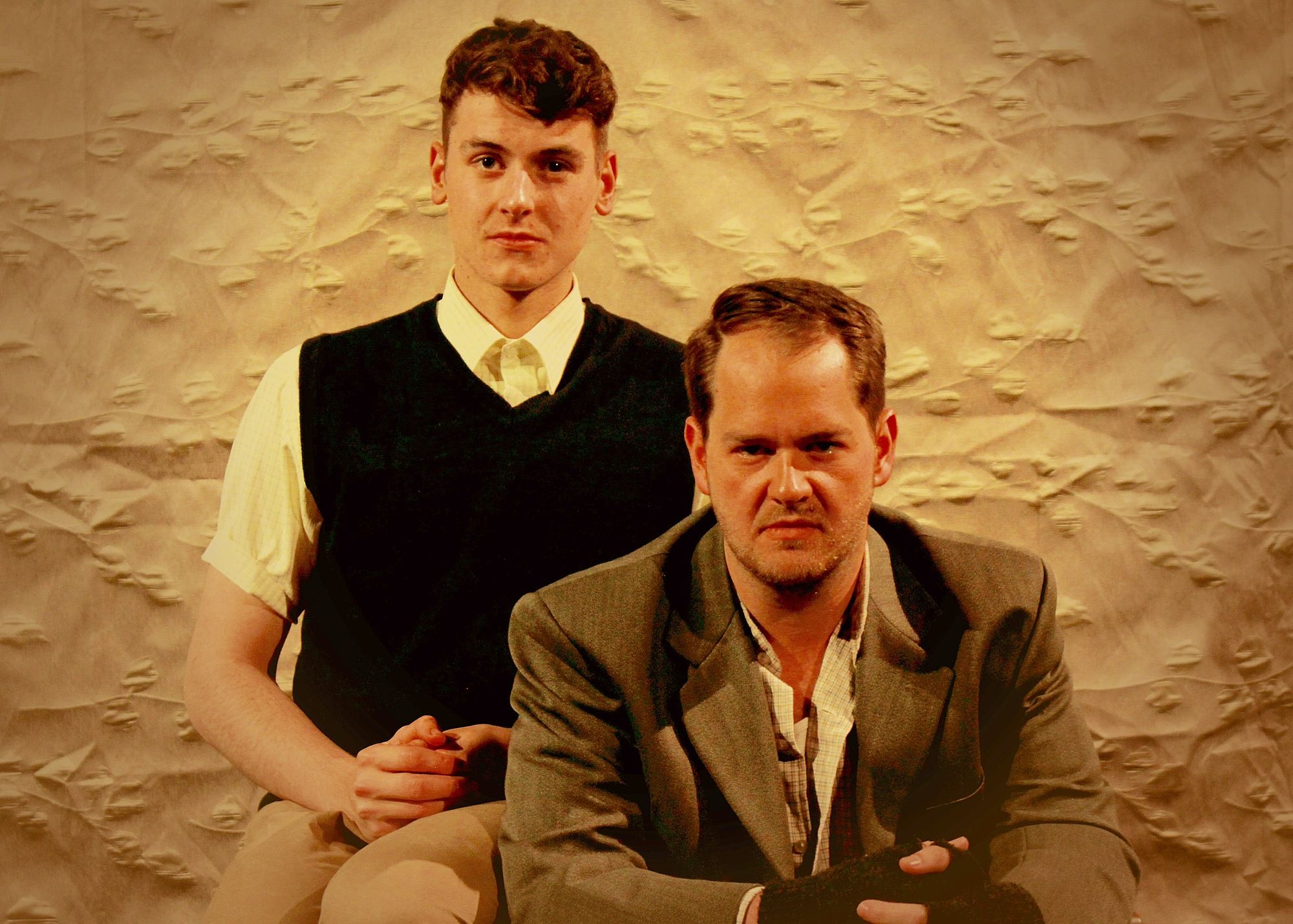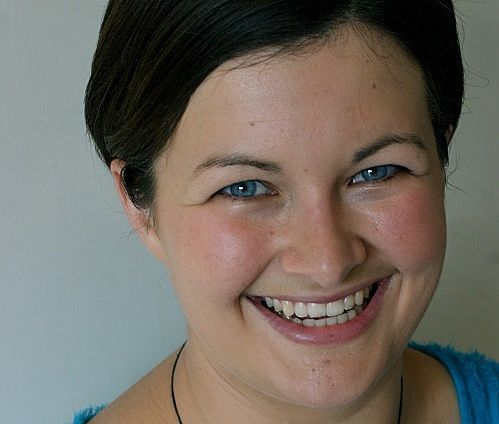Review: Orphans
Thirty-three years after the play first rocked Off Broadway, Lyle Kessler's Orphans is getting its first New Zealand production. Shannon Friday reviews it.
Thirty-three years after the play first rocked Off Broadway, Lyle Kessler's Orphans is getting its first New Zealand production. Shannon Friday reviews it.
The world of Lyle Kessler's Orphans is a living room, and every minute there's an earthquake. The stakes could not be lower – three losers spitting, slashing, and clawing at each other for supremacy of their decrepit living room – but they could not be higher – three men trapped in an impoverished hellscape, desperate for safety and approval. Some thirty years after the play’s American premiere, Orphans is making its debut in New Zealand, at BATS Theatre. Director Stella Reid’s grimy production thrives on that contrast between the small and the seismic, the mundane events and the emotional eruptions.
In a ruined duplex in North Philadelphia, two orphaned brothers, Phillip and Treat, have formed their own fierce family unit. Phillip (Jimmy O'Donovan) is a nervous shut-in, trapped in the house by his fear of having an allergic reaction to the outside air – a fear that older brother Treat (Andrew Paterson) constantly feeds. Treat is a petty criminal, a self proclaimed “lone wolf” with a fiery temper who’s master of this run-down domain.
The pair are bound by mutual need: Phillip needs a noble provider and Treat craves a dependent admirer. They have their own twisted rituals, too. Treat pulls out watches and bangles he’s taken from his mugging victims and Phillip oohs and aahs on cue; Phillip describes people he’s seen out the window that day and Treat feigns interest. There’s violence lurking under all of this: Treat gets in Phillip’s face, fists counting down to launch, when he suspects Phillip might have been reading the newspaper and trying to educate himself. But that dissolves into another ritual, an eternal game of tag, in another lightning change.
The status quo gets shaky when Treat brings Harold (KC Kelly) to the duplex. Harold’s a “legitimate businessman" from Chicago; Treat’s brought him home in a bid to get him blind drunk and rob him for all he’s worth. But Harold isn’t the easy mark Treat thinks he is. He plays the co-dependent brothers against each other, then takes them under his wing, turning the duo into a precarious trio and threatening to send Phillip and Treat’s tiny world spinning off its axis.
The three men lurch from one emotional emergency to another, ill-prepared to deal with the storms of rage and vulnerability sweeping through their tiny flat, and the emotional messiness of it all demands a cast that’ll take it to the mattresses. And holy hell, does Reid encourage her actors to go for it. Paterson starts with a kind of 1980s De Niro drag all hitched shoulders, thrust chin and wiseguy accent. He’s a wannabe tough guy, a boy playing at gangsters. By comparison, O’Donovan’s Phillip is a fey creature: slightly built, with a sing-song voice, gangling elbows, and timid, reaching fingers that must be held back from exploring the world around him. Paterson and O’Donovan build strong, polar-opposite physical presences, and they play off the differences from the moment they share the stage.
Kelly’s Harold is the most at home in his own skin, commanding and overwhelming any space he’s in with his booming voice and definite movement. He’s a physical and psychological threat: going toe to toe with the enraged Treat, he doesn’t give an inch. With that threat established, even the most innocuous actions become loaded: an actor carrying a bowl of soup across the room feels just as tense as the blowout fights. The cast ricochets from situation to situation, but they never let it drop.
The emotional messiness of it all demands a cast that’ll take it to the mattresses. And holy hell, does Reid encourage her actors to go for it.
Victoria Gridley’s fantastic costume design complements and backs up the work the actors are doing. Treat’s shredded jeans and leather jacket are contrasted with a glittery fascinator that just dares people to comment or stare. Every piece of clothing is scrapped from someone else, patchwork identities built to be armour. Not only do these outfits fill in the gaps, bringing out different shades in the characters, but every costume change tracks a change in their means, self-image, and loyalty. Phillip’s change from well-worn undies to matching sweater vest and loafers, for example, projects his growing confidence under Harold’s patronage.
Olivia Clarke-Edward’s set design brings a sense of history to the space, each layer of stuff taking the audience a step further back in time. The empty mayonnaise containers and skeletal remains of meals past litter the room, not having made it home to the mountains of trash piled against the walls. Cutting through the upstage right corner of the Propeller Stage is the crumbling ruin of a wall; there’s a nook in the wall, too, a closet where Mom’s moulding jackets are collected, relics of the ancient past. Every scratch on the stained yellow wallpaper, every burnmark and hole, feels like it has an epic fight behind it.
At the same time, the wall’s crumbling top line opens up the space and acts as a constant reminder that what we’re seeing is representation. I can see the yellow wall; I see the black theatre wall behind it. The Propeller space is made to hold two spaces at once – the stairs to the dressing room are the duplex’s stairs, the dressing room a bedroom and bathroom – and it creates a kind of cognitive dissonance, allowing energy to escape through the rafters.
Orphans is a pressure cooker, and I’m most engaged when I feel trapped in that pressure cooker with these dangerous men, no heat allowed to escape. The moment that energy’s lost, I’m reminded that I’m watching a 30-year-old American play, that I’m watching three actors thrash about on a stage in New Zealand. I stop identifying so hard with the men in front of me; I start judging them instead. Treat, Phillip and Harold become those people, rather than a reflection of the men I live and work with. Compartmentalising the space like that, adding multiple boundaries to the room, makes it feel temporary, escapable.
It’s less clear how the sound and lighting design are meant to support the action. Orphan’s first act has very few sound cues, only noises dictated by the main action. The second act, on the other hand, is filled with atmospheric noise, like the rainstorm that starts up about halfway through it. It’s a total shift in the design’s focus, from the isolated ecosystem of the living room to the wider world world outside, but the change is sudden, jarring, not at all organic. It’s distracting.
The lights are similarly confusing. Sometimes they highlight the passage and compression of time, something that’s brilliantly exploited in the hyperspeed lamp flickers that track, with the sound of a fast-forwarding VHS, to the ancient films Phillip watches on their tiny TV. Sometimes they signify emotional truths, like in the cinematic, Expressionist shifts from wash to spotlight during the few monologues. But by making lighting and sound pull double duty, all it takes is some weird cueing to pull me out of the production at exactly the moments I most want to connect with the characters – including during the play’s climax, which is half-silly and half-devastating.
Orphans constantly registers on the emotional Richter scale, but these confused technical choices dampen its effectiveness. Rather than unleashing devastating jolts to the system, key moments shudder along, their impact staggered and uneven. When it all comes together, though, Orphans is ferocious, hitting the audience as hard as its characters with uneasy tremors and cataclysmic quakes.
Orphans runs at
BATS Theatre, Wellington
from Tuesday 30th August to Saturday 3rd September
For tickets to and more information about Orphans, go here.

